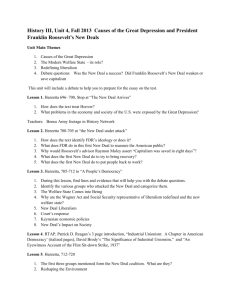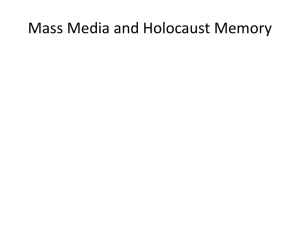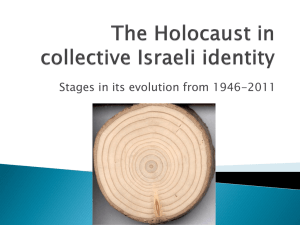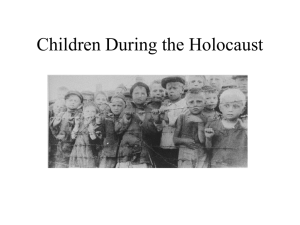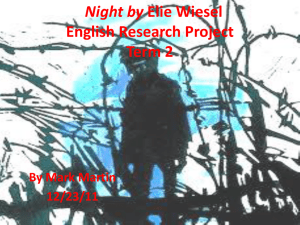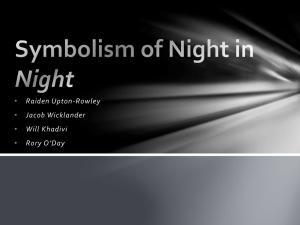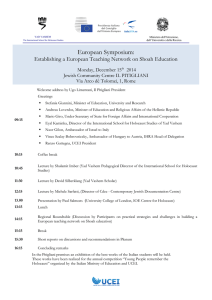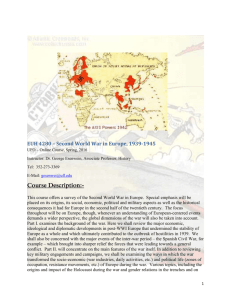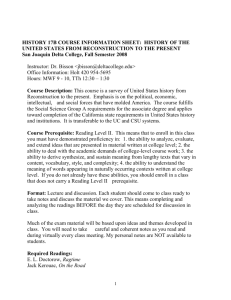Origins of the Cold War
advertisement
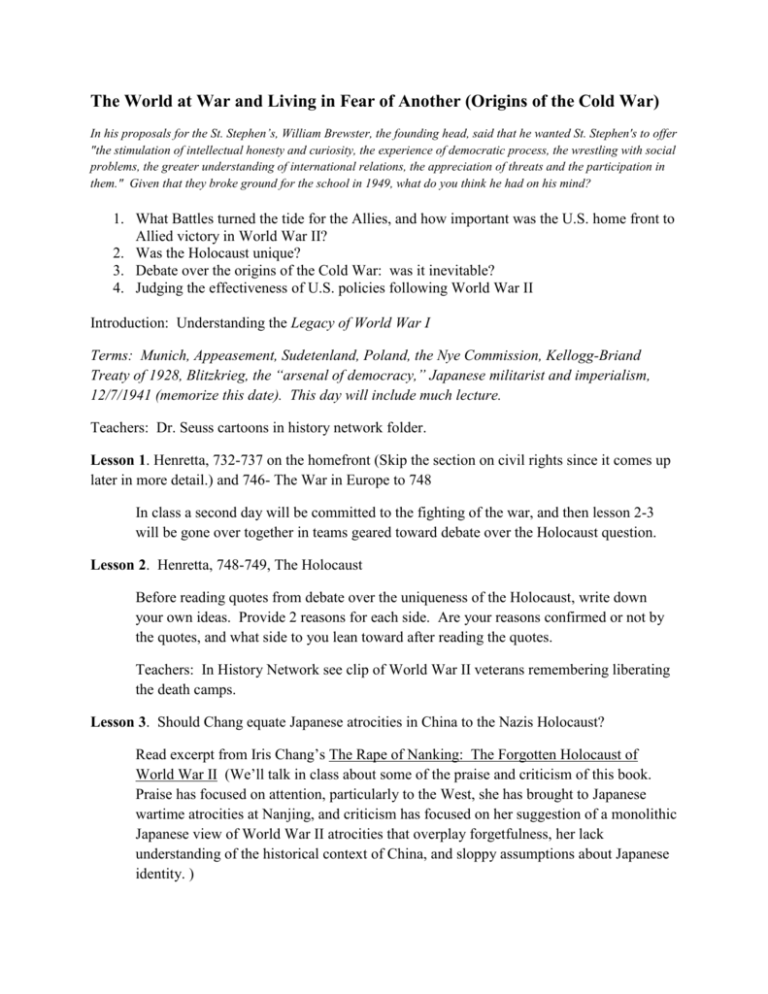
The World at War and Living in Fear of Another (Origins of the Cold War) In his proposals for the St. Stephen’s, William Brewster, the founding head, said that he wanted St. Stephen's to offer "the stimulation of intellectual honesty and curiosity, the experience of democratic process, the wrestling with social problems, the greater understanding of international relations, the appreciation of threats and the participation in them." Given that they broke ground for the school in 1949, what do you think he had on his mind? 1. What Battles turned the tide for the Allies, and how important was the U.S. home front to Allied victory in World War II? 2. Was the Holocaust unique? 3. Debate over the origins of the Cold War: was it inevitable? 4. Judging the effectiveness of U.S. policies following World War II Introduction: Understanding the Legacy of World War I Terms: Munich, Appeasement, Sudetenland, Poland, the Nye Commission, Kellogg-Briand Treaty of 1928, Blitzkrieg, the “arsenal of democracy,” Japanese militarist and imperialism, 12/7/1941 (memorize this date). This day will include much lecture. Teachers: Dr. Seuss cartoons in history network folder. Lesson 1. Henretta, 732-737 on the homefront (Skip the section on civil rights since it comes up later in more detail.) and 746- The War in Europe to 748 In class a second day will be committed to the fighting of the war, and then lesson 2-3 will be gone over together in teams geared toward debate over the Holocaust question. Lesson 2. Henretta, 748-749, The Holocaust Before reading quotes from debate over the uniqueness of the Holocaust, write down your own ideas. Provide 2 reasons for each side. Are your reasons confirmed or not by the quotes, and what side to you lean toward after reading the quotes. Teachers: In History Network see clip of World War II veterans remembering liberating the death camps. Lesson 3. Should Chang equate Japanese atrocities in China to the Nazis Holocaust? Read excerpt from Iris Chang’s The Rape of Nanking: The Forgotten Holocaust of World War II (We’ll talk in class about some of the praise and criticism of this book. Praise has focused on attention, particularly to the West, she has brought to Japanese wartime atrocities at Nanjing, and criticism has focused on her suggestion of a monolithic Japanese view of World War II atrocities that overplay forgetfulness, her lack understanding of the historical context of China, and sloppy assumptions about Japanese identity. ) Lesson 4. Henretta, Cold War America, 757-765 Lesson 5. Retrieving the American Past (RTAP) See section “Scholars Debate the Origins of the Cold War,” and read Schlesinger, “The Soviet Union Blamed for the Cold War,” Paterson’s “The U.S. Blamed for the Cold War,” 213-226. This is a longer assignment. You need notes on major ways in which these two authors disagree. Underline text first, then come up with your own “cheat sheet.” Be sure to have things written down on paper, though. Be sure to know which one is the orthodox view and which the revisionist. Also note what the introduction says about the direction scholars have moved recently. In class, “The Ghost of Munich.” If you would like a reading on this term and its importance to consensus of modern scholarship see McWilliams, The Origins of the Cold War, 35-36. Lesson 6. RTAP, 227-top of 228, Stalin, Kennan, & Wallace Read these for the evidence you would use to advise President Truman. Summarize what type of policy you think the U.S. should have followed based on these documents. Lesson 7. McWilliams, The World Since 1945, 53-63 (starting at “The occupation” up to “The first test” near top of page 63) on Chinese Revolution and origins of Korean War Lesson 8. McWilliams, pp. 63 (from “The first test”)-73 on the Korean War and its results. Lesson 9. RTAP, 245-9 on NSC-68 (don’t take detailed notes but provide written answers to questions #3 and #4 at the end of this reading); Henretta 772 – Red Scare to Containment in the Postcolonial World on p. 778. notes in class: the NSC, the CIA, and the “garrison state.” Also, Truman to Eisenhower Test: Dec. 13 or 14, depending on when your class meets and your teacher.
